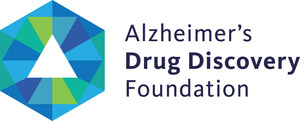Alzheimer's Drug Discovery Foundation Funds Amicus Therapeutics To Advance Pharmacological Chaperone Technology
NEW YORK, May 6 /PRNewswire-USNewswire/ -- The Alzheimer's Drug Discovery Foundation (ADDF) announced today that it has awarded a grant of $210,300 to Amicus Therapeutics (Nasdaq: FOLD; Cranbury, NJ) to evaluate small-molecule, orally delivered pharmacological chaperone compounds as a novel approach for treating Alzheimer's disease.
Amicus has discovered an apparent link between various lysosomal enzymes and accumulation of the beta-amyloid and p-tau deposits observed in the brain of Alzheimer's patients. The ADDF's award will fund initial pre-clinical proof-of-concept studies for a specific pharmacological chaperone that targets one of these lysosomal enzymes.
Pharmacological chaperones (PCs) are small molecules that selectively bind and stabilize target proteins to facilitate proper folding, reduce premature degradation and increase the efficiency of protein trafficking through the cell. This approach may be broadly applicable to diseases where an increase in the activity of a specific protein may provide therapeutic benefit.
"We are honored to be selected for this grant and delighted to work with the ADDF and explore our novel approach to the treatment of Alzheimer's disease," said Dr. Brandon Wustman, Principle Investigator on the grant and Director of Exploratory Biology at Amicus Therapeutics. "Our research at Amicus has demonstrated that studying the underlying pathology of lysosomal disorders can provide valuable insights into the mechanisms of age-related neurodegenerative diseases, and can lead to the identification of new targets for pharmacological chaperone-based therapies. If our pharmacological chaperones are effective in animal models, we believe this research has the potential to lead to the development of new, disease-modifying therapies for Alzheimer's disease, as well as the rarer lysosomal storage disorders that share a common pharmaceutical protein target."
Amicus' studies will be carried out in collaboration with Dr. Samuel Gandy, Mount Sinai Professor of Alzheimer's Disease Research, Professor of Neurology and Psychiatry, Associate Director of the Mount Sinai Alzheimer's Disease Research Center in New York City, and Chairman Emeritus of the National Medical and Scientific Advisory Council of the Alzheimer's Association. Dr. Gandy is an expert in Alzheimer's disease and the metabolism of beta-amyloid peptides that accumulate in the brains of patients with Alzheimer's.
"Amicus is taking a very unique approach using their pharmacological chaperone technology for the treatment of Alzheimer's disease," commented Dr. Gandy. "The recent genetic linkage of Parkinson's disease to a lysosomal glycosphingolipid storage disorder provides a compelling rationale for exploring the role of gangliosides (a type of glycosphingolipid) in Alzheimer's. Amicus' experience using PCs to stabilize proper protein folding in Fabry disease provides support that this strategy has the potential to benefit patients. My research group is delighted to collaborate with Dr. Wustman and his colleagues."
"The grant from the ADDF will allow Amicus to expand on the company's exciting findings implicating ganglioside catabolism in both beta-amyloid and tau disease pathways in Alzheimer's disease," said Dr. Howard Fillit, the ADDF's Executive Director. "This novel approach has the potential to significantly impact the disease at multiple levels."
For more information about the ADDF, please contact Filomena Machleder at 212-901-8004 or [email protected]. For information about Amicus Therapeutics, please contact Jenene Thomas (609) 662-5084 or [email protected].
About the Alzheimer's Drug Discovery Foundation (www.AlzDiscovery.org)
The ADDF is the only public charity whose sole mission is to accelerate the discovery and development of drugs to prevent, treat and cure Alzheimer's disease, related dementias and cognitive aging. The ADDF uses a venture philanthropy model to bridge the worldwide funding gap between basic research and later-stage development, using any return on investment to support new research. Since 1998, the ADDF has granted more than $40 million to fund over 295 Alzheimer's drug discovery programs in academic centers and biotechnology companies in 15 countries.
About Amicus Therapeutics (www.amicustherapeutics.com)
Amicus Therapeutics is developing orally administered, small molecule drugs called pharmacological chaperones, a novel, first-in-class approach to treating a broad range of diseases including lysosomal storage disorders and neurodegenerative diseases. Amicus' lead program is in Phase 3 for Fabry disease.
SOURCE Alzheimer's Drug Discovery Foundation
WANT YOUR COMPANY'S NEWS FEATURED ON PRNEWSWIRE.COM?
Newsrooms &
Influencers
Digital Media
Outlets
Journalists
Opted In






Share this article